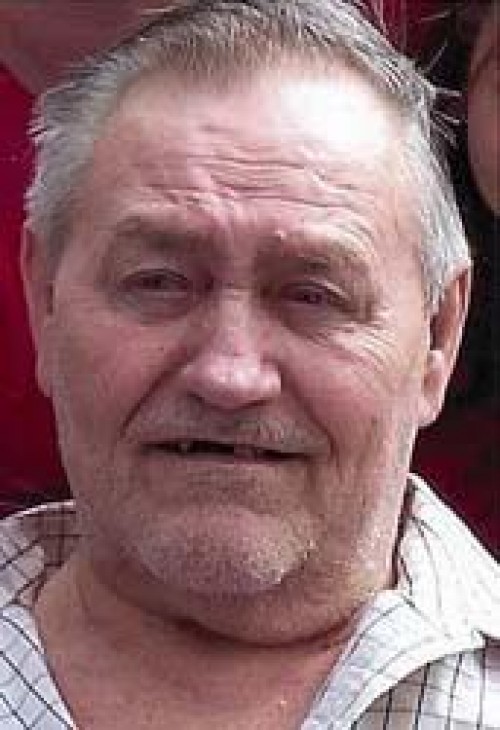
Harry Pryne
April 14, 2011
Despite maintenance, pontoon bridges cost-effective option
April 18, 2011“Going blind was the best thing that ever happened to me,” said John Burt as he leaned back in a brown imitation leather recliner that is a predominate fixture in his combination office and warehouse on the campus of Leonard J. Chabert Medical Center.
Burt is the owner of Burt’s Snack Shop, a popular spot for hospital employees, and operates his own vending machine business. But among those that know him best he is viewed as a champion for others in need.
As he and his wife of 10 years, Paula, walk from Burt’s office to the snack shop, they exchange greetings with those who know them and call out their names.
At the age of 55, Burt is seen as a surrogate older brother to some and a father figure by others. Yet, his hefty frame, white hair and full southern voice are no match for the functionless blue eyes that appear fixed in an expression of compassion and concern for the well being of others.
“For blind people there ain’t a lot of jobs,” Burt said during a morning conversation prior to checking on preparations for his lunch crowd and making sure his 26 soft drink and snack machines were well stocked.
Although he has a staff of five employees, Burt offers a reminder that he frequently takes charge of meal preparation. “I marinade the meat myself. I fill the vending machines. This is a six-day a week job at least. It operates 24/7.”
Burt is also known for donations he has made to shelters for battered women and having organized fundraising efforts to help individual families dealing with personal tragedy.
When two Chabert employees were killed in an automobile crash and two others were severely injured, Burt raised $4,000 for their families. He is involved with organizations such as the American Cancer Society, to which he made a $2,000 donation this month toward the operation of a cancer resource office at Chabert Medical Center. He also serves on the board of directors with the Louisiana Council for the Blind. “I have a duty to help others,” he said.
Burt claims he has not always been so concerned about the wellbeing of other people.
He started out as a typical, carefree young man from Sulphur in southwestern Louisiana.
After he left high school Burt spent eight years as a cook in the Navy.
In 1980 he began work as a heavy rigger, but when a Teamsters strike broke out and he was unable to perform his normal job, Burt took on work as a security officer in Lake Charles.
It was while making his nightly security rounds on Jan. 26, 1984, that Burt’s career and his life changed forever.
“I got shot in the face with a 12 gauge [shotgun] from 16 feet,” Burt said. “They thought I was somebody else. That’s how I went blind.”
As part of his five-year rehabilitation program, centered on learning to live without sight, Burt became involved with the Randolph-Sheppard program, which heads efforts to help blind clients go into business for themselves with a quasi franchise arrangement.
“What Randolph-Sheppard does is they have vending, snack shops and cafeterias. When it first started, it was set up as a cigar shop to give blind people a chance to do something other than begging,” Burt said.
The Randolph-Sheppard Vending Stand Act of 1936 was a congressional directive to the Department of Veterans Affairs that offered priority to blind vendors, snack shop owners, and news and tobacco stand operators that were common in many high-rise office buildings and courthouses through the mid-1970s.
It became a program in which private operations were supported by government funding, and included covering the cost of location and some overhead.
The Randolph-Sheppard Act was amended in 1954 and again in 1974 to match changing societal conditions and expanded opportunities for those making use of this resource.
Today, Randolph-Sheppard Vendors of America is described as a national membership organization, commonly referred to as Blind Services, that is committed to improving economic opportunities for the blind. The RSVA negotiates merchandise pricing from suppliers and sets contracts for service locations. It might have some government backing, but it is up to each participant to make his or her own living. The level of success is in the hands of local operators.
“We have 80 locations in [Louisiana] alone,” Burt said. “We did $17 million in gross sales last year.” He also revealed that his own income during 2010 was approximately $180,000.
It was an effective placement opportunity through Randolph-Sheppard that brought Burt to Houma in 2005, when the previous snack shop and vending manager was fired for not conducting business properly.
Now, in a time when government budget cuts are threatening federal and state backed institutions, such as Chabert Medical Center which is part of the LSU Health System, many might be concerned about how those measures impact related businesses such as Burt’s. He has his own philosophy on the matter.
“As budget cuts come to the hospital, they’re not allowed to give as much medical service as they normally do. [As for me], I don’t have to pay a lease. I don’t have to pay electricity. But I have to pay everything else,” Burt said.
“I believe in balanced budgets, but that don’t change the need. So what we try to do is help. We can’t change the world, but we provide meals and cakes for hospital [events].”
In the snack shop kitchen, Burt’s employees claimed they would speak highly of him even if he were not standing nearby and listening.
“I’ve been here about two months and so far [Burt] has turned out to be a very wonderful man,” said cook Gwen Lirette. “He has his little ways, but that is a typical businessman. I enjoy it.”
“Gwen likes to act like she is center stage,” Burt said teasing his employee.
“I am,” Lirette said, showing she can dish it out as well as take it.
“[My job] is done by memory,” Burt said. He confirmed that he knows from his years of having sight what most things look like. He now makes mental pictures to get around, perform routine tasks and visualize people. “I have a picture in my mind of what I think you look like based on your voice and how you talk,” he said. “I’ve never seen my wife, but I know what she looks like to me.”
Burt addressed a common misconception among the sighted population that being blind means total darkness, such as turning off a light in an enclosed room. It is difficult to describe seeing nothing, he admitted, and confirmed that it is sometimes light and sometimes dark, but still nothing.
“I went from 20/20 vision and made a living by what I could see, to instant nothing. You have to learn how to [do everything] again,” he said. “You have to learn how to brush your teeth. You have to learn to shave without looking in the mirror. But I’ll tell you what. I know better than anyone here where everything is and where it goes.”
Burt did learn. He learned how to make a living for himself, how to exercise charity to others, and how to be an example to his children, grandchildren and people around him of what anyone is capable of doing.
“I do a lot of advocacy work. That is probably what I am the most known for,” Burt said. “That’s something we really like doing.”
“He’s pretty amazing,” Paula Burt said of her husband. “I think he is a testament to the world.”
When asked what he thought of the man who shot him and spent five years and one day in prison as the price for stealing another man’s sight, Burt said it was a matter of time and perspective.
“You know, in the beginning I would have liked to give him an old fashioned butt whippin’,” Burt said. “But today, me and my momma both said this, going blind was the best thing that ever happened to me.”
“I was runnin’ wild and livin’ hard,” Burt said. “Now, I have a wife, kids and grandkids. I’m at the top of my game. I’m able to do things. And I’m able to help others. To actually give away a lot of generosity … the way that we see it is we appreciate doing it.”
As a man who matured with time, and with what he agreed to call a different ability, Burt let it be known that he might have lost his sight 27 years ago, but in its place has grown to possess a healthy sense of vision.
Losing his sight was the best thing that ever happened to him, says John Burt who has been able to build a successful vending company and snack shop business. MIKE NIXON











